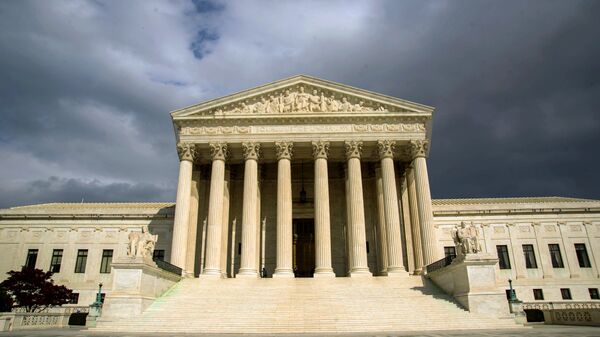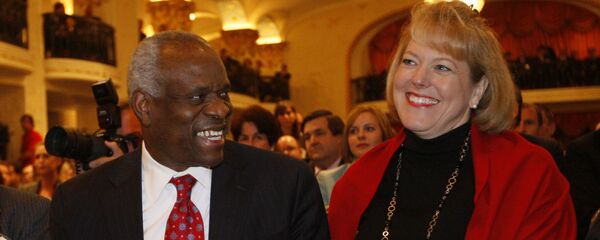On Wednesday, the Supreme Court ruled in the case Janus v AFSCME, stating that non-union public sector workers cannot be forced to pay union fees. A noted victory for conservatives, the ruling ultimately overturns a 40-year standing policy that enabled unions to charge non-members for services such as negotiating, collective bargaining and grievance procedures.
Mark Janus, an employee at the Illinois Department of Healthcare and Family Service, brought his case to the justices in the summer of 2017. He argued that his $45 monthly fee to the union, the American Federation of State, County and Municipal Employees (AFSCME), was unconstitutional because it infringed on his First Amendment rights. He argued that the fees were a form of political advocacy, since contract negotiations are with the government, CNBC reported.
Knowlton told Radio Sputnik's Loud & Clear on Wednesday that the ruling comprised yet another attack on labor unions.
"It's a massive decision against the rights of union workers in the United States in the public sector and we do see it as part of the wholesale assault on labor unions and workers rights," Knowlton told show hosts Brian Becker and John Kiriakou.
"It's just a continuous assault on the rights of workers to be able to determine their own debts… and how they want to be able to fund their organizations."
"I think one of the things that gets lost is the fundamental precept of the collective bargaining agreements… to a large degree a collective bargaining agreement is simply a written expression of what the majority of workers in a particular workplace want… and for the US Supreme Court to now say that ‘you can have this or this, but you can't do that,' for us it's an infringement on our democratic rights as workers to be able to govern our workplaces," he added.
Addressing the matter on whether the ruling would overturn existing collective bargaining contracts, fellow guest Jeff Bigelow, an official with AFSCME, told Becker that it was likely going to happen.
"Yes, it will," Bigelow said. "It won't overturn the entire contracts, but it will certainly overturn portions of contracts that provide for fair share provisions and it may overturn portions of contracts that have to do with what's called ‘maintenance of membership' that have to do with the stability of the union and the stability of the membership."
"This is an overturning of votes that have already been taken… it's definitely a right-wing, billionaire initiative to push back on labor," the union official stressed.
Looking ahead, Knowlton pointed out that "unions are going to have… to be very responsive to their [workers'] needs" and "give people a reason to want to be able to put money into an organization that actively represents them."
"This is a really bad decision, but in some respects it's going to force the public sector to operate a little bit differently, knowing that their ability to collect whatever income they get from dues are not guaranteed from one year to the next," Knowlton added.
The court's Wednesday ruling followed a series of decisions handed down by justices this week ahead of their 2018 summer recess. In related Supreme Court news, Justice Anthony Kennedy announced after the labor union ruling that he would be retiring.



